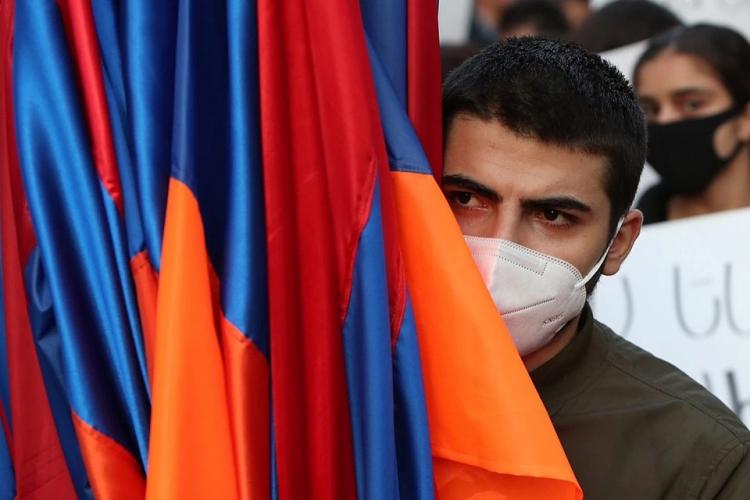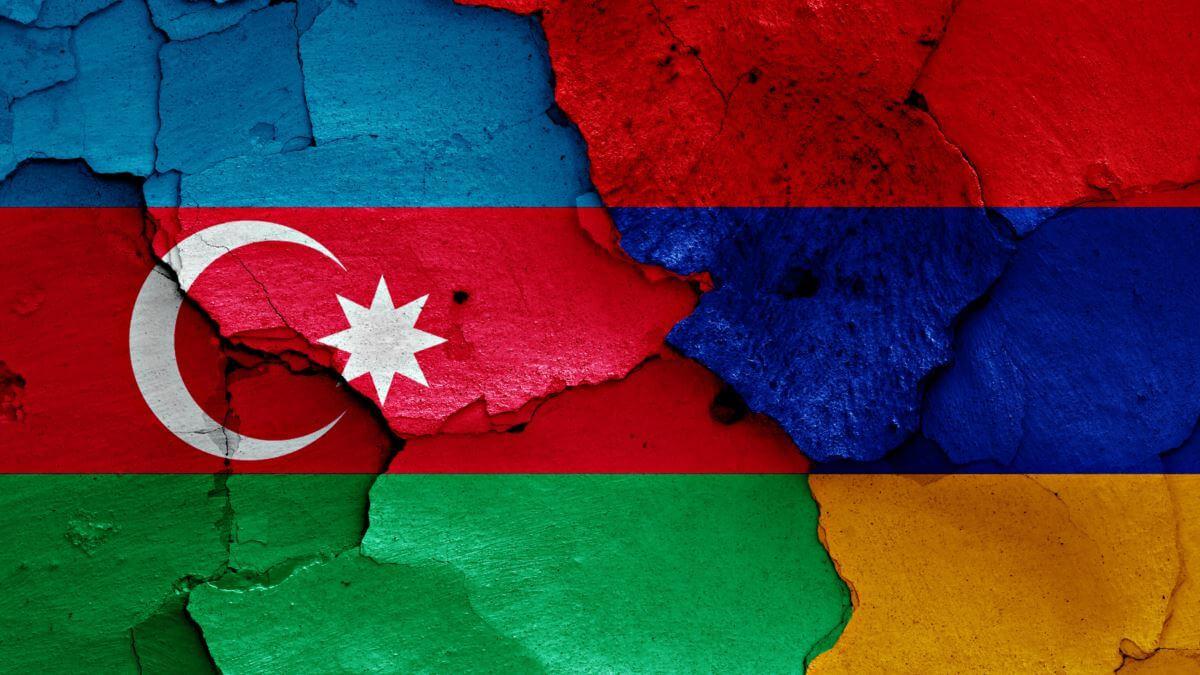"Protests in Yerevan to continue, but not result in change of power" Caliber.Az presents an interview with Russian expert Sergey Borovikov
Caliber.Az presents an interview with Russian expert Sergey Borovikov, a leading analyst of the Border Cooperation Association.
- Sergey Yevgenyevich, should we expect any progress in the normalization of Armenian-Azerbaijani relations after the April meeting of Pashinyan and Putin in Moscow?
There is mutual interest in the normalization of Armenian-Azerbaijani relations, but it is hard to expect a radical breakthrough so far. It is difficult to move this process forward, and Russia, it seems to me, can do little.
- Is it not in Russia's interests to eliminate the disagreements between Baku and Yerevan?
It is undoubtedly in Russia's interests to stabilize the situation and normalize Armenian-Azerbaijani relations in order to maintain its presence in the South Caucasus as a factor in deterrence of Turkey's influence in the region.
- Armenia itself needs normalization in the first place. How do you assess the situation in that country at the moment?
Armenia is in an extremely vulnerable position, transport isolation, which actually worries Russia as much as it needs to somehow maintain its military base there. Thus, the situation in Armenia is much worse, it needs food supplies, especially considering that a global food crisis is expected in the coming year, and it needs access to energy resources. At the same time, Armenia needs to extend the operation of the nuclear power plant, oil and gas to somehow support the economy and a lot of other things.

- The protests in Yerevan against the Armenian leadership's policy on Karabakh and against negotiations with Baku, in general, show that they have not yet put up with the new realities. Is there a possibility of a coup d'etat in Armenia?
The fact is that the instability in Armenia is now principally set by external players, who need this instability badly in order to try to expel Russia out of the region this way. England and the USA are interested in this. There will be protests, but this is unlikely to lead to a change of government in Armenia. But let us put it this way: with active external support, overthrowing the authorities is possible, but in this situation, it is technically difficult. Therefore, the internal conflict will be artificially inflamed and supported. But Russia's task at this stage, as I see it, is to hold the situation, and not to let it develop into serious destabilizing processes, in which it is not interested.
- Do you think that Europe's intensification of mediation in the Armenian-Azerbaijani negotiations shows its desire to seize the initiative from Russia, or is Europe really trying to draw a line in this confrontation?
From my point of view, Europe is engaged in absolutely none of its business. Right now it has a lot of internal and external problems. In no sense, Europe is able to solve Yerevan's key problems, neither in security issues, nor in the military-technical sphere, nor in supplying energy resources by prolonging the life of the nuclear power plant and supplying it with fuel and so on. Europe cannot supply Armenian goods to its market, because it is closed by protectionist measures, and Armenia's logistical and transport links with Europe leave much to be desired. Europe cannot supply Armenia with fertilizers, for which it is in serious deficit. In this sense, the only practical value of these talks is an attempt to expel Russia and isolate it on a political and diplomatic front along the entire external border. I think this policy will fail since Europe can't show anything reasonable and substantive at the moment. But it is all fueled by external players.
I think now Britain will dramatically increase its efforts in the foreign policy game against Russia, and we will somehow traditionally return to the scheme of a big war of England against Russia, as it was in the 19th and early 20th centuries. Europe in this situation has no independent policy and eagerly follows the Americans.

- You said you were skeptical about Baku and Yerevan signing a peace agreement... Why is that?
- Yes. I am skeptical about the signing of the Armenian-Azerbaijani peace agreement. Too many external players are interested in maintaining a hotbed of instability. That is why it is difficult to build such a lasting peace at the moment, and it is not clear how. For example, Russia still has no peace treaty with Japan, and some claims are voiced about the Kurils, but this does not prevent relatively constructive cooperation and confront from time to time. That is, a peace treaty is not a strictly obligatory procedure.
- Can Armenia join the Union State of Russia and Belarus?
The prospects for Armenia to join the Union State of Russia and Belarus in the next five years seem to be extremely doubtful in terms of the overall foreign policy configuration. On the one hand, Armenia's domestic policy is not ready for this. It is also inconvenient in terms of logistics and transit. Moreover, such a scheme will add to problems rather than solve them. It may be rational in 10-15 years at the earliest.
- Recently, there has been information that Russia has suspended arms supplies to Armenia. Is this true?
I have no specific information about this. But generally, I can assume that all more or less new weapons go to the special operation in Ukraine. Russia is not concerned about Armenia. Taking obsolete scrap metal to Armenia, given the complexity of logistics, is simply pointless.








